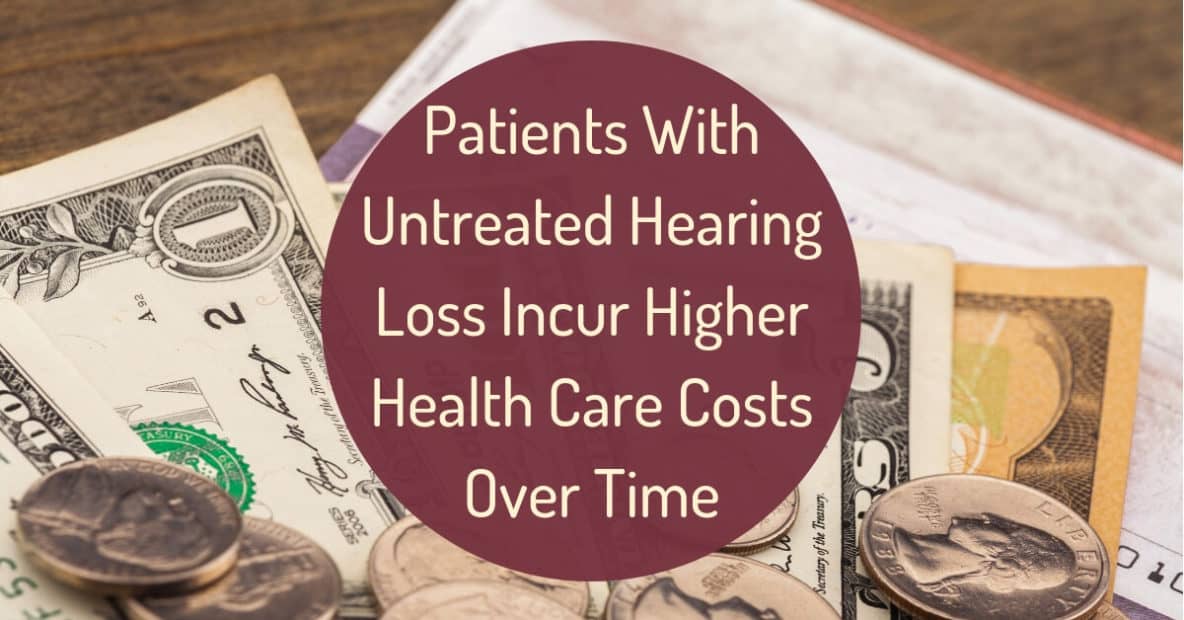- Up in Smoke: Exploring the Hidden Risks of Tobacco Use on Hearing Health - April 10, 2024
- Navigating Hearing Loss as a Millennial - March 13, 2024
- Understanding the Testing Process: What to Expect During a Hearing Evaluation - February 14, 2024
An estimated 38 million people in the United States of America are experiencing some form of hearing loss—two-thirds of these people are older than 70. Researchers have estimated that one in three people who are between 65 and 74 years old currently has hearing loss. While it is a common condition, many people who experience hearing loss are not getting the hearing health help that they may need. Less than 20 percent of older adults use hearing aids. The Hearing Loss Association of America reports that people typically wait an average of seven years before they seek help for the hearing loss that they had previously noticed.
There are many reasons to have your hearing checked and to treat any hearing loss you may have. Hearing loss has been linked to many physical and mental health problems, ranging from anxiety and depression to severe cardiovascular problems. In all, untreated hearing loss can lead to higher rates of hospitalization and, with that, extremely high health care costs. This is the findings reported in a study published on November 8, 2018 in the Journal of the American Medical Association (JAMA).
Study on Untreated Hearing Loss and Higher Healthcare Costs
The study was conducted as a collaboration between Johns Hopkins University, AARP Services Inc., OptumLabs and the University of California, San Francisco. The researchers mined data held at OptumLabs Data Warehouse, looking at records from 1999 to 2016 involving people enrolled in large, private U.S. health plans and Medicare Advantage plans. They identified over 77,000 patients with age-related untreated hearing loss who were not using hearing aids, or whose hearing loss was secondary to a medical condition or toxic agent such as chemotherapy. The researchers then matched each of these patients with others in the database by coding 25 factors such demographics, health conditions, health care utilization such as inpatient hospitalizations and readmissions, ER visits, and more. The researchers analyzed health care cost and utilization outcomes and trends at two-, five- and 10-year follow-up points.
Overall, researchers analyzed health data from more than 150,000 people who were aged 50 and older. These people reported age-related hearing loss and none of them were currently using hearing aids. The researchers’ findings corroborated other studies of the effects of untreated hearing loss: it is associated with a greater risk of depression, dementia, heart attacks, as well as trips and falls. They found that, over 10 years, people with untreated hearing loss had a 52 percent greater risk of suffering from dementia, a 41 percent higher risk of depression, and an almost 30 percent greater risk for falls.
Perhaps some of the most interesting and important findings came regarding the relationships between hearing loss and health care costs. The researchers found that people with untreated hearing loss experienced 46 percent higher total health care costs, amounting to $22,434 per year. They also found that people with untreated hearing loss spent almost 50 percent more time in the hospital than people with normal hearing and people who treat their hearing loss. Related, those with untreated hearing loss had a 44 percent higher risk of being readmitted to the hospital within 30 days of their initial discharge.
Those numbers are for people who were studied over 10 years. But researchers found that the costs incurred by people with untreated hearing loss can take effect after just two years. After only two years, people with untreated hearing loss accumulated nearly 26 percent more in total health care costs. (By ten years, this gap that widened to 46 percent by 10 years, amounting to $22,434 previously noted).
Correlations between Untreated Hearing Loss and Health Issues
There are several reasons that people with untreated hearing loss incur higher medical costs. For example, repeated hospital visits might occur because patients with untreated hearing loss cannot adequately communicate with the doctors and nurses they interface with, leading to miscommunications that extend hospital stays or lead to too-early discharges. Another reason is simply that treating hearing loss can be expensive. Medicare does not cover hearing aids and the out-of-pocket expenses for these devices are high, upwards of $4,000.
Some hospitals are taking steps to be more accommodating to those with untreated hearing loss. Johns Hopkins Bayview Medical Center, for example, developed a pilot program to provide extra training to doctors and nurses, to improve signage, and provide hearing amplification devices. The researchers are currently collecting outcomes data associated with these interventions to determine whether they result in better care.
Seeking Treatment for Hearing Loss
If you have noticed a change in your hearing, it is important to seek treatment. Treating hearing loss brings significant benefits to your life – not the least of which helping to reduce your healthcare costs. The first step is to schedule a hearing test with us at Audiology Consultants. We provide comprehensive hearing tests, and if a hearing loss is detected, our team will work with you to find the best solution to treat your hearing needs.
![Audiology Consultants] of Panama City](https://audiology-consultants.com/wp-content/uploads/2018/04/Audiology-Consultants-of-Panama-City-1.png)

